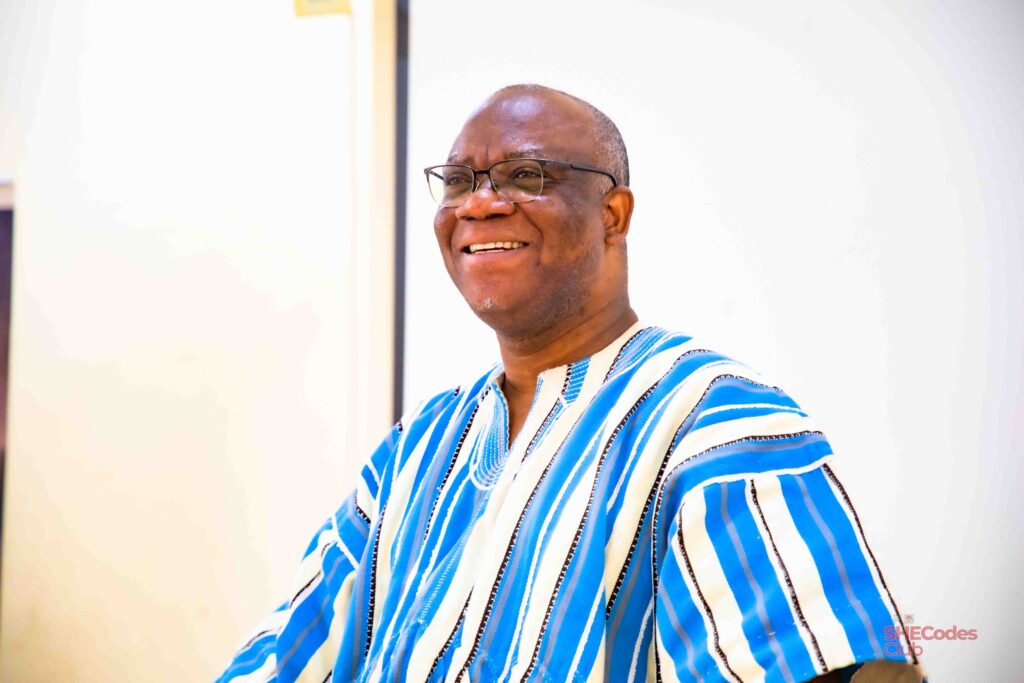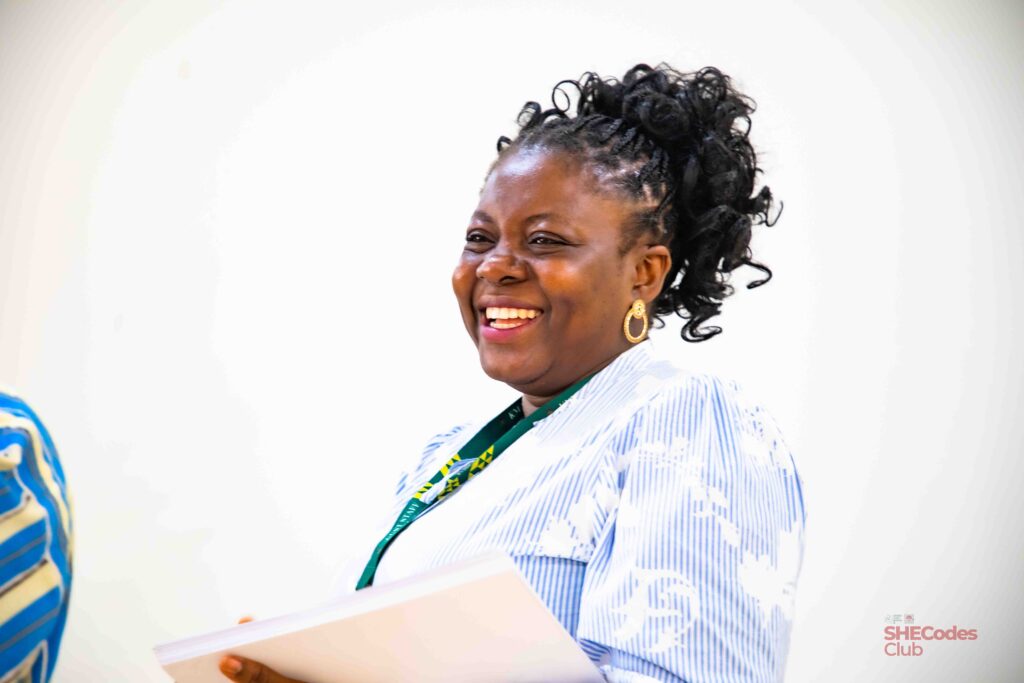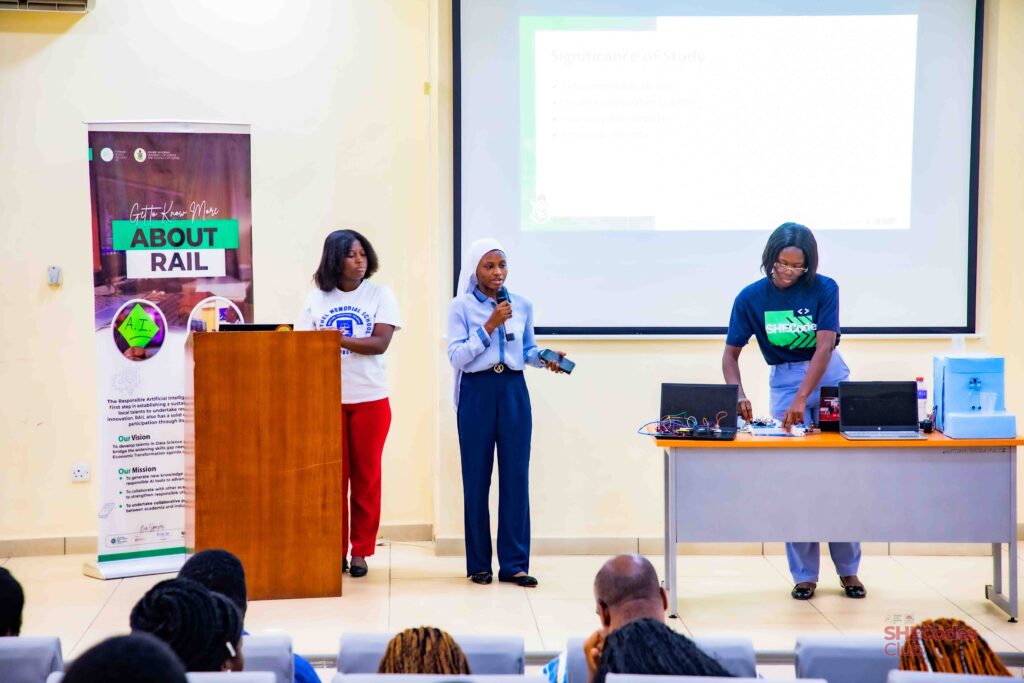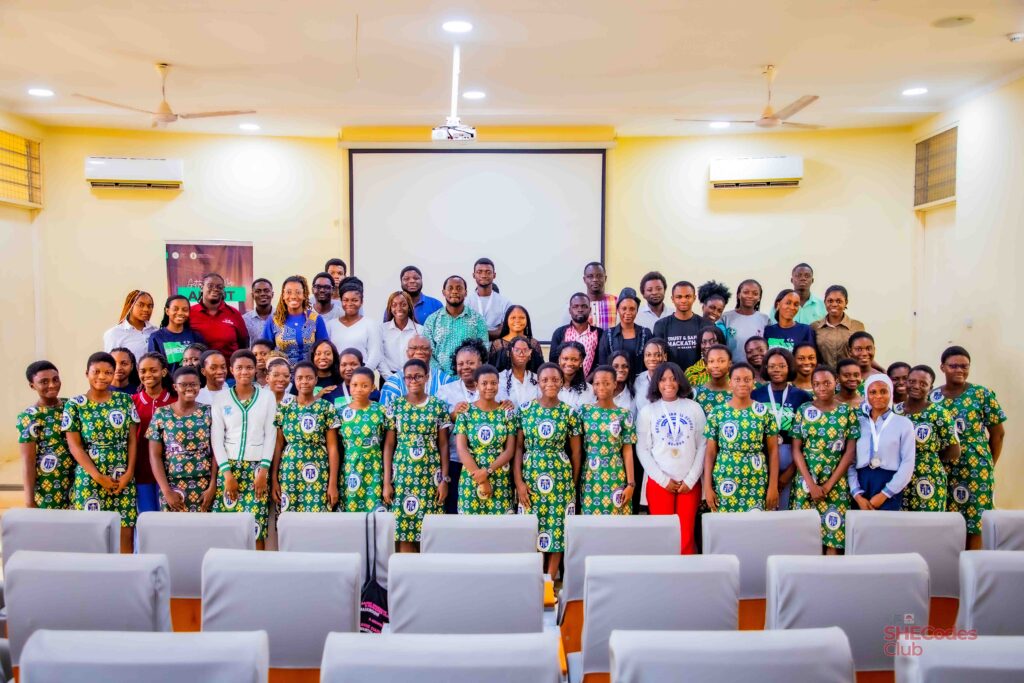On 3rd August 2024, the graduation and Python challenge for the SHECodes Cohort 2 Club was held at the RWESCK Auditorium. The SHECodes club is a digital skills development programme that trains female students in a programming language. It seeks to equip ladies from diverse fields of study with coding skills and build their capacities in AI-based solutions to solve real-life problems.

In his welcome address, Prof. Jerry John Kponyo, Principal Investigator and Scientific Director for the Responsible AI Lab (RAIL), highlighted the importance of the SHEcodes initiative. Born under RAIL’s Women in Technology theme in partnership with the Women in Engineering (WinE) KNUST Chapter, the initiative equips females to navigate the digital space where the future belongs. He mentioned the need for students to prepare for new jobs in the digital space and build capacity for transitioning roles. Prof. Kponyo urged students to focus on AI and robotics and to channel these skills into solving societal problems, stating that education is only meaningful when it addresses real-world issues. He expressed gratitude to the collaborators, students, and stakeholders for their participation and called for continued support to secure the future of the youth.

Dr. Eunice Akyereko Adjei, the Women in Technology Theme Lead at RAIL, explained that the SHECodes club trains students in a specific programming language per cohort for skill acquisition and application. For Cohort 2, the focus was on Python programming, with Musa Ibrahim, a Research Assistant at RAIL, and Taufiq Musah, a final-year Biomedical Engineering student, as instructors. Dr. Adjei noted that the initiative encourages students to identify problems and develop solutions using their newly acquired skills to create start-ups from various projects for research commercialisation.

Six teams presented their AI-powered innovations to solve practical societal problems:
- Team G: Automated humidity and temperature control for chicks, allowing farmers to regulate temperature ranges for better chick production and increased revenue.
- Team B: Autonomous Inventory Management System to digitise inventory systems in retail shops, predict customer trends, and optimise stock levels.
- Team F: Automatic contactless dispenser with ultrasonic sensors.
- Team E: Speech detection translation model named the Daniella App, which translates speech into text for the hearing impaired.
- Team D: Handheld water test kit that detects water pH levels to determine safety for consumption.
- Team C: Wearable panic alert system for reliable emergency communication featuring real-time tracking and alerts.

Team F won the challenge with their automatic contactless dispenser project. They were followed by Team C with their wearable panic alert system and Team D with their handheld water test kit. The winning teams received congratulatory medals, and all Cohort 2 members of the Shecodes Club were presented with certificates.

Prof. Kponyo congratulated all graduates of Cohort 2 and encouraged SHS students to pursue careers in Science, Technology, Engineering, and Mathematics (STEM). He emphasised that STEM is not just a man’s field and that women can excel. Participants were charged to unleash their coding potential and embrace digitalisation.

Dr. Eric Tutu Tchao, Agriculture and Food Security Theme Lead, RAIL. Dr. Kwame Oteng Gyasi, RAIL Robotics Theme Fellow and Mrs. Betty Kponyo, Assistive Devices Theme Lead, RAIL, graced the event.
The event saw participation from mentors of the RAIL Robotics Club from Good Shepherd JHS, Ayeduase Roman Catholic JHS, and students from St. Louis SHS.
